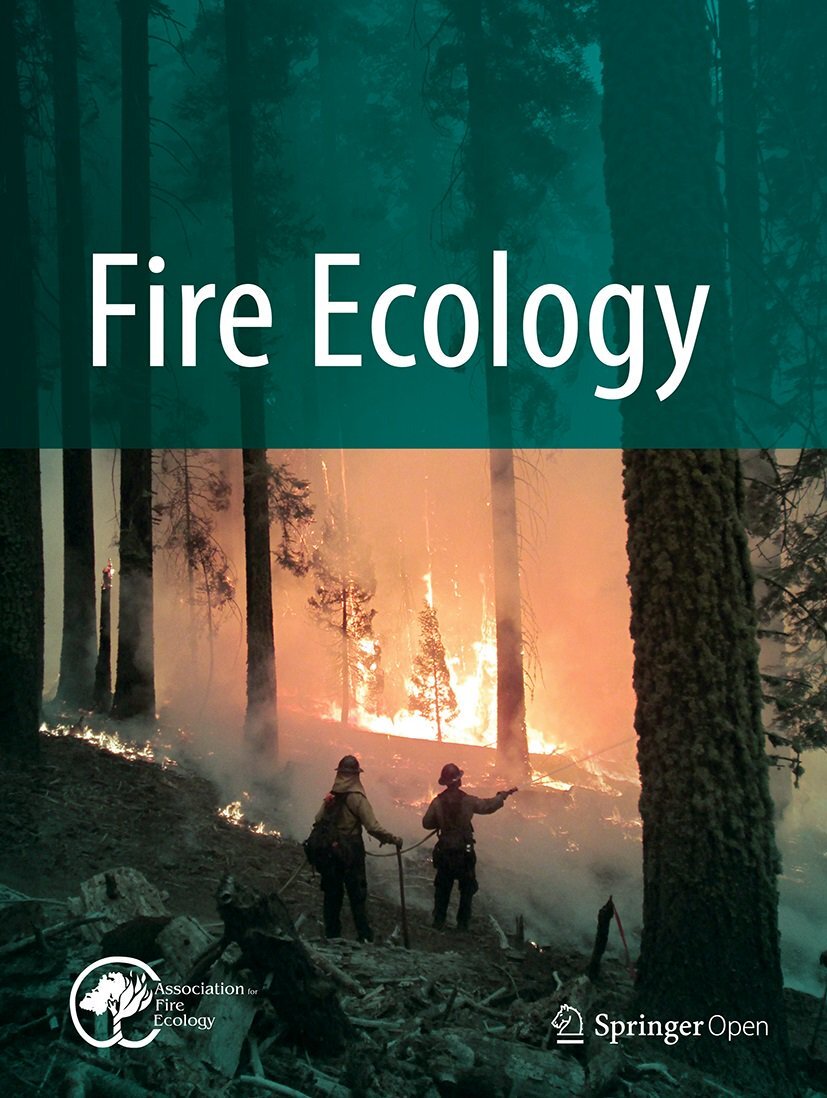通过服务学习改进森林火灾管理方面的培训、知识转让和认识
IF 5
3区 环境科学与生态学
Q1 ECOLOGY
引用次数: 0
摘要
森林火灾是对地中海生态系统的严重威胁,被认为是该地区主要的环境和社会经济问题之一。Plantando cara al fuego(PCF,西班牙)项目旨在传授知识,加强对新一代的森林火灾管理培训。该项目以服务学习(S-L)的应用为基础,这是一种将学习与社区服务相结合的教育方法。PCF 项目是 S-L 活动的汇编,由多个 S-L 项目组成,目的是减少森林火灾问题。每个项目都是在地区/地方层面开展的,涉及不同的社会主体,如研究人员、学生(来自不同学科)、学校、多学科专业人员、非政府组织或行政部门。参与者接受了 S-L 的初步培训,以设计侧重于森林火灾不同方面(环境意识、宣传/沟通、火灾预防或火灾后恢复)的项目。这些应用项目通过课程正式纳入学习过程,用于教授和强化横向技能,并让学生参与其中,努力解决实际问题。总体而言,参与者的反应非常好,因为这些项目有助于营造一种氛围,促进学习、参与者之间的互动、理论课内容的应用、知识传授或良好教学实践的交流。本作品中介绍的 PCF 项目摘要可作为实用指南,描述解决环境问题的 S-L 项目的设计、开发和评估所涉及的活动、参与者和必要步骤。在这一案例中,S-L 被调整以适应以前从未应用过的特定环境(即森林火灾问题),但这一方法是多用途的,可应用于不同的环境问题。本文章由计算机程序翻译,如有差异,请以英文原文为准。
Service-learning to improve training, knowledge transfer, and awareness in forest fire management
Forest fires represent a severe threat to Mediterranean ecosystems and are considered one of the major environmental and socioeconomic problems of the region. The project Plantando cara al fuego (PCF, Spain) is designed to transfer knowledge and to improve the training of new generations in forest fire management. The project is based on the application of service-learning (S-L), an educational methodology that combines learning and community service. Conceived as a compendium of S-L initiatives, the PCF project is composed of several S-L projects with the objective of reducing the problem of forest fires. The individual projects are developed at the regional/local level, each one involving different social agents such as researchers, students (from different disciplines), schools, multidisciplinary professionals, NGOs, or the administration. Participants received an initial training in S-L to design projects focused on different aspects of forest fires (environmental awareness, outreach/communication, fire prevention or post-fire restoration). These applied projects are formally integrated in the learning process via curriculum, which serve to teach and reinforce transversal skills and allow students to get involved and work to solve real problems. In general, the response of the participants was highly favorable, since the projects served to create an atmosphere that facilitates learning, interaction between participants, the application of theoretical class contents, knowledge transfer, or the exchange of good teaching practices. The summary of the PCF project presented in this work serves as a practical guide describing the activities, participants, and the necessary steps involved in the design, development, and evaluation of S-L projects to address environmental problems. In this case, the S-L was adapted to a specific context (i.e., the problem of forest fires) to which it had never been previously applied, but this methodology is versatile and can be applied to different environmental issues.
求助全文
通过发布文献求助,成功后即可免费获取论文全文。
去求助
来源期刊

Fire Ecology
ECOLOGY-FORESTRY
CiteScore
6.20
自引率
7.80%
发文量
24
审稿时长
20 weeks
期刊介绍:
Fire Ecology is the international scientific journal supported by the Association for Fire Ecology. Fire Ecology publishes peer-reviewed articles on all ecological and management aspects relating to wildland fire. We welcome submissions on topics that include a broad range of research on the ecological relationships of fire to its environment, including, but not limited to:
Ecology (physical and biological fire effects, fire regimes, etc.)
Social science (geography, sociology, anthropology, etc.)
Fuel
Fire science and modeling
Planning and risk management
Law and policy
Fire management
Inter- or cross-disciplinary fire-related topics
Technology transfer products.
 求助内容:
求助内容: 应助结果提醒方式:
应助结果提醒方式:


